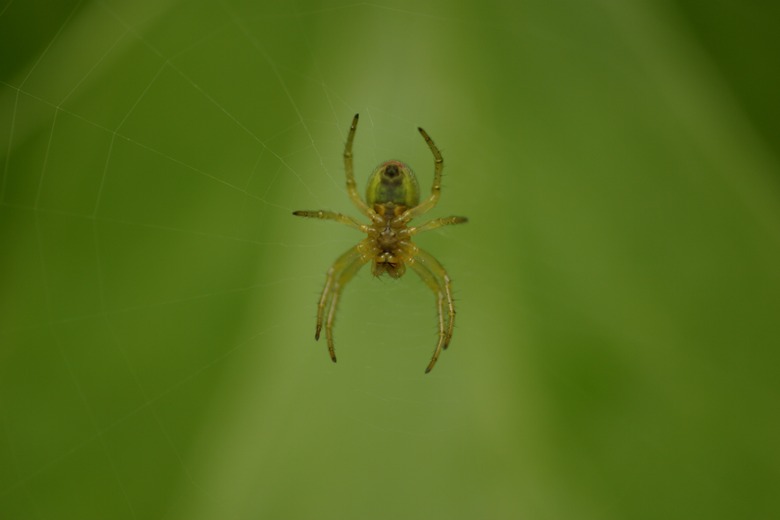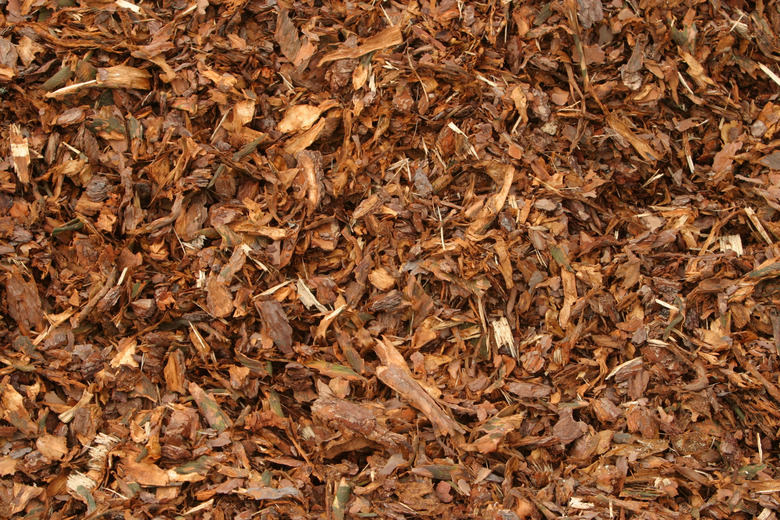Do Cedar Wood Chips Repel Spiders?
Cedar wood has a crisp, aromatic smell, and cedar's fabled insect-repelling abilities help fabrics stored in cedar closets or chests remain moth-free. Likewise, cedar wood chips in the garden repel some insects, but knowledgeable gardeners don't rely on cedar mulches to keep spiders away. Not only does cedar lose potency relatively quickly, but some cedar mulches aren't true cedar at all.
Cedar Wood
All cedar wood is not equal. The wood of a true cedar tree (Cedrus spp.) does have a natural oil that repels some insects, but not all cedar chips come from true cedar trees. Eastern red cedar (Juniperus virginiana) and Western red cedar (Thuja plicata) are not true cedars, but rather North American native evergreens that gardeners use as windbreaks and ornamental trees in tough areas. Unfortunately, their mulch does not generally repel insects. True cedars, such as the popular deodar cedar (Cedrus deodara) are native to the Middle East.
Effectiveness
While mulching with true cedar wood chips will repel aggressive, non-native Argentine ants and certain house ants, the oil doesn't necessarily bother all insects and arachnids. Additionally, the repelling effect is temporary and diminishes as the cedar slowly decomposes, often losing any repelling effect within a year or two. Also keep in mind that the highest concentration of insect-repelling compounds reside in the cedar's heartwood, while wood chips include bark and sapwood.
Spiders
Spiders are not insects, but rather arachnids. They have different metabolisms than insects, and what may repel an insect won't bother a spider. Spiders do, however, follow their food sources like any other predator. Eliminate their food source, and the spiders migrate away from your eaves, foundation, or that certain dark corner of the porch. According to a webpage on Kansas State University's website, pea gravel is much less welcoming to insects than an organic mulch and, unlike cedar wood chips, won't need replacing often. Without a reliable food source, the spiders leave these areas.
Considerations
Spiders, despite their vilification in Halloween decorations or B-movies, are beneficial. They keep insect populations down, indirectly protecting your vegetables from voracious pests or your skin from mosquitoes. Linda Reyor of Cornell University calls spiders "the most important terrestrial predator" and urges homeowners to leave the eight-legged exterminators alone. Contact your local county extension for information on common garden spiders; the more you learn their habits, the less likely you are to have unexpected encounters.



